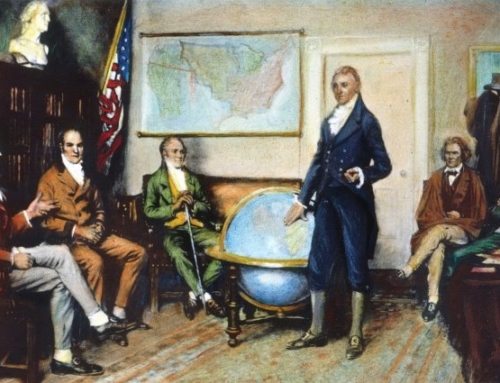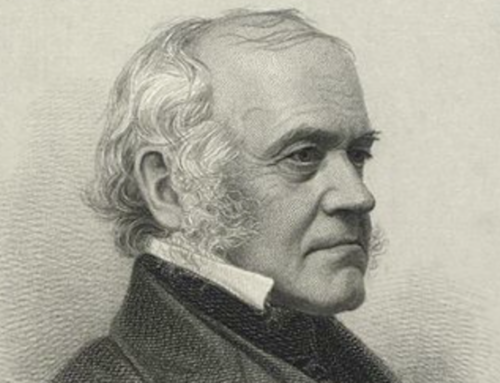Though we often associate the Greeks with the “order of the mind,” we should note that Socrates had a deeply spiritual and theological side, which embraced divine reason as the language of the living and the dead.
 When someone—and, in 2022, it’s likely nearly everyone in the world of academia and in the world at large—gets cynical about the meaning and essence of Western civilization, I get very upset and find the criticisms maddening. There’s no doubt that, at times, the West has been sexist, racist, and imperialist, but it has also been deeply and mightily humane, from time to time and from thinker to thinker. If we focus only on the former, we almost always forget about the latter. While I would never want to whitewash the story of the West, I would also hate merely to denigrate it. The West has revealed, time after time, its love of the dignity of the human person.
When someone—and, in 2022, it’s likely nearly everyone in the world of academia and in the world at large—gets cynical about the meaning and essence of Western civilization, I get very upset and find the criticisms maddening. There’s no doubt that, at times, the West has been sexist, racist, and imperialist, but it has also been deeply and mightily humane, from time to time and from thinker to thinker. If we focus only on the former, we almost always forget about the latter. While I would never want to whitewash the story of the West, I would also hate merely to denigrate it. The West has revealed, time after time, its love of the dignity of the human person.
In particular, we can focus on the contributions and thoughts of Socrates (469-399 B.C.), perhaps the first of the great Western philosophers (lover of wisdom) to arrive in this world of sorrows. Socrates served as a political leader as well as a military hero of Athens, but he didn’t enter into fame (or, actually infamy) until 404 B.C., when Athens had been defeated by an alliance of Sparta, Corinth, and Persia. Between 404 and 399 B.C., Socrates served as the polis gadfly, condemning all he encountered for lacking virtue and integrity. Living, essentially, as a secular prophet—counter to, as well as complimentary of, Jeremiah, Ezekiel, and Isaiah—Socrates predicted the nastiness of the present and the future.
In his famous (or infamous, depending on one’s point of view) Apology, Socrates defended his position: “I am your very grateful and devoted servant, but I owe a greater obedience to God than to you; and so long as I draw breath and have my faculties, I shall never stop practicing philosophy and exhorting you and elucidating the truth for everyone that I meet,” Socrates told the Athenians. “I shall do this to everyone that I meet, young or old, foreigner or fellow-citizen; but especially to you my fellow-citizens, inasmuch as you are closer to me in kinship” [here, one should stress the intimate meaning of the word “polis,” so awkwardly translated as “city-state” in the English language].
Most especially, though, Socrates loved the “woman in white.” While sleeping, he declared, she had appeared to him, assuring him that on the third day, after the arrival of the ship, he would be in the land of Pythia, the land of his ancestors. In this, Socrates echoes much of Western mythology and history. One might easily think of the Lady of the Lake who bequeathed to King Arthur the sword of Excalibur, or the lady in white who appeared to King Alfred at Athelney, or the “White Buffalo Woman” who appeared to two Lakota warriors and gave them the law. There’s also, of course, the lady with her leopards in Eliot’s “Ash Wednesday.” One would not be guilty of thinking of Jesus rising on the third day, or Mary, His mother, appearing countless times over the past two thousand years, when considering Socrates and the lady in white who visited him in his dreams.
Though, as Russell Kirk noted in his brilliant Roots of American Order, we often associate the Greeks with the “order of the mind,” we should note that Socrates had a deeply spiritual and theological side, which embraced the God of reason as the language of the living and the dead. In this, Socrates predates and anticipates the words of Cicero in his Platonic dialogue, On the Laws:
This animal—provident, perceptive, versatile, sharp, capable of memory, and filled with reason and judgment—which we call a human being, was endowed by the supreme god with a grand status at the time of its creation. It alone of all types and varieties of animate creatures has a share in reason and thought, which all others lack. What is there, not just in humans, but in all heaven and earth, more divine than reason? When it has matured and come to perfection, it is properly named wisdom. And, therefore, since there is nothing better than reason, and it is found both in humans and in god, reason forms the first bond between human and god. And those who share reason also share right reason, since that is law, we humans must be considered to be closely allied to gods by law. Furthermore, those who share law also share the procedures of justice, and those who have these things in common must be considered members of the same state, all the more so if they obey the same commands and authorities. Moreover, they do obey this celestial order, the divine mind and the all-powerful god, so that this whole cosmos must be considered to be the common state of gods and human.
Foreshadowing Cicero, Socrates announced the objectivity of ethics in his dialogue with this close friend, Crito:
SOCRATES: Do we say that one must never willingly do wrong, or does it depend upon the circumstances? Is it true, as we have often agreed before, that there is no sense in which wrongdoing is good or honorable? Or have we jettisoned all our former convictions in these last few days? Can you and I at our age, Crito, have spent all these years in serious discussions without realizing that we were no better than a pair of children? Surely the truth is just what we have always said. Whatever the popular view is, and whether the alternative is pleasanter than the present one or even harder to bear, the fact remains that to do wrong is in every sense bad and dishonorable for the person who does it. Is that our view, or not?
CRITO: Yes, it is.
SOCRATES: Then in no circumstances must one do wrong.
CRITO: No.
SOCRATES: In that case one must not even do wrong when one is wronged, which most people regard as the natural course.
CRITO: Apparently not.
SOCRATES: Tell me another thing, Crito. Ought one to do injuries or not?
CRITO: Surely not, Socrates.
SOCRATES: And tell me, is it right to do an injury in retaliation, as most people believe, or not?
CRITO: No, never.
SOCRATES: Because, I suppose, there is no difference between injuring people and wronging them.
CRITO: Exactly.
SOCRATES: So one ought not to return a wrong or an injury to any person, whatever the provocation is.
Socrates’ response rivals that of Jesus Christ, nearly 400 years later, to turn the other cheek. While Jesus’ command comes from the very Hand of God, one should not so easily dismiss Socrates. Just as the Old Testament served as a preparation for the New Testament, so the greats of the Greeks, Socrates especially, served as a preparation to the Greeks.
To be sure, the West had its victories, and, ethically, this is one of them.
The Imaginative Conservative applies the principle of appreciation to the discussion of culture and politics—we approach dialogue with magnanimity rather than with mere civility. Will you help us remain a refreshing oasis in the increasingly contentious arena of modern discourse? Please consider donating now.
The featured image is “Socrates, his two Wives, and Alcibiades” (1675) by Reyer van Blommendael, and is in the public domain, courtesy of Wikimedia Commons.







Thanks, Bradley
Thank Bradley, for this bite-sized philosophical essay.
…and I believe Socrates and/or his protege(s) informed the Christian Apostles, one of whom (Paul) cites “the philosopher” in his address to the Athenians (in Acts of the Apostles).
I have long struggled with taking this line of thinking to the next extreme. Should we interpret this reasoning to extend to negating a right to self defense? Where is that demarcation?